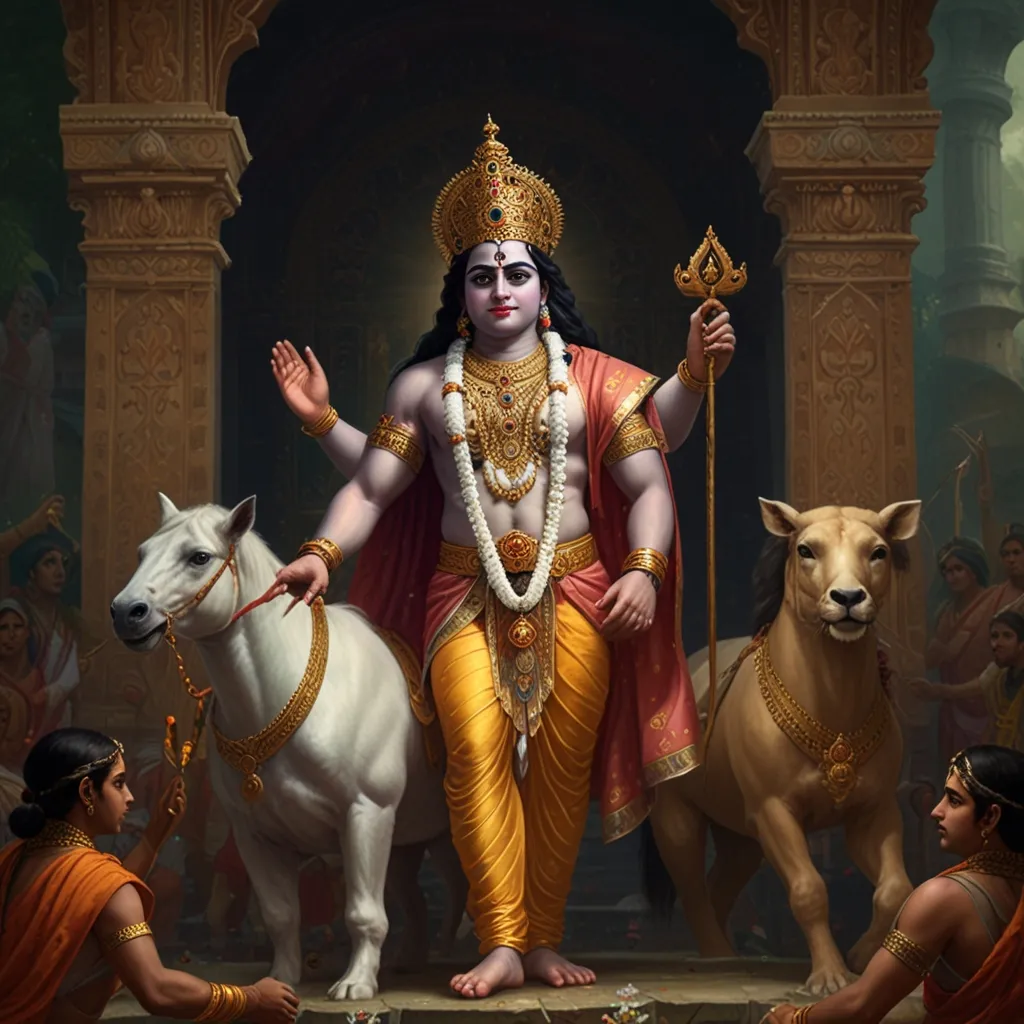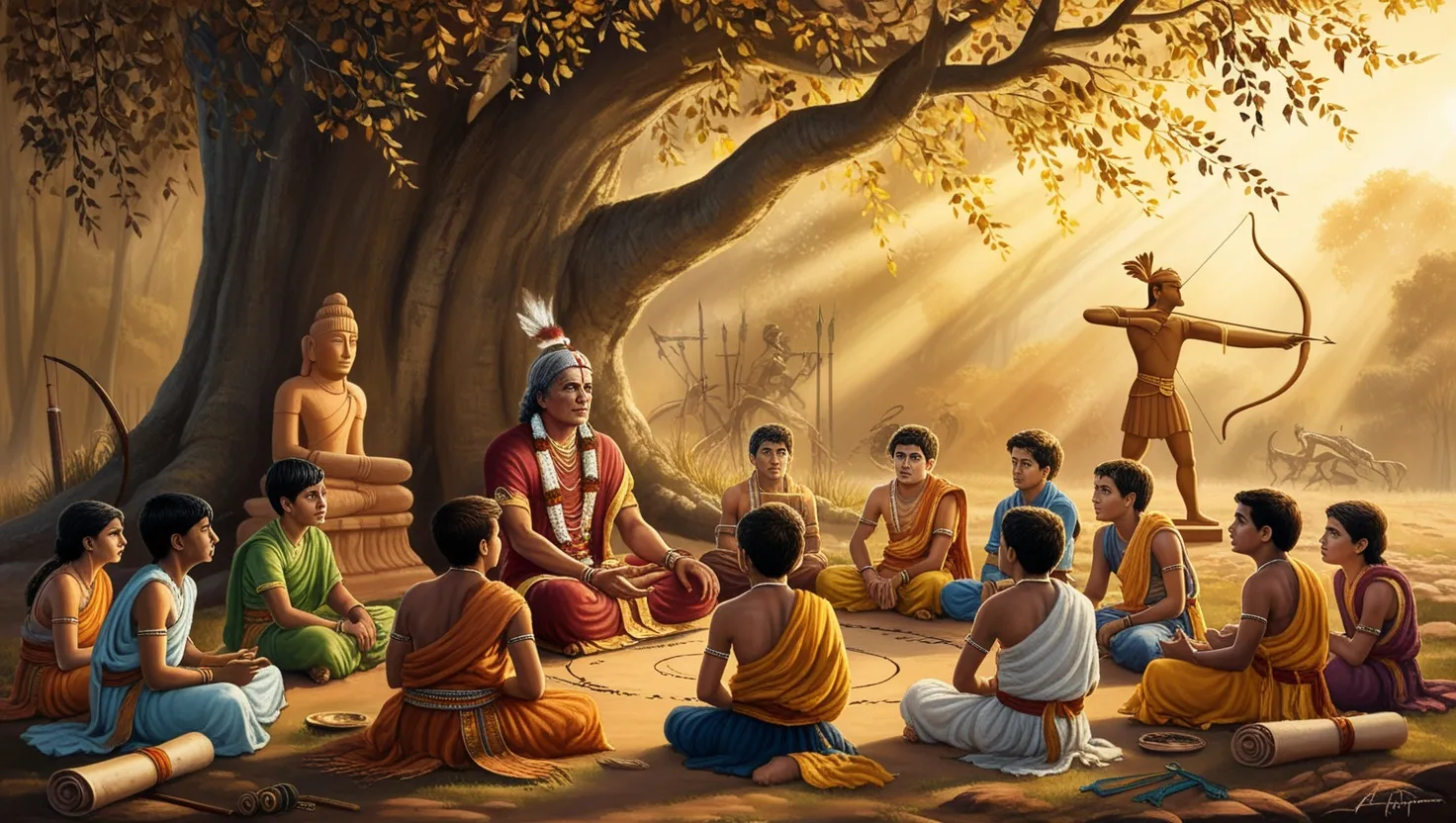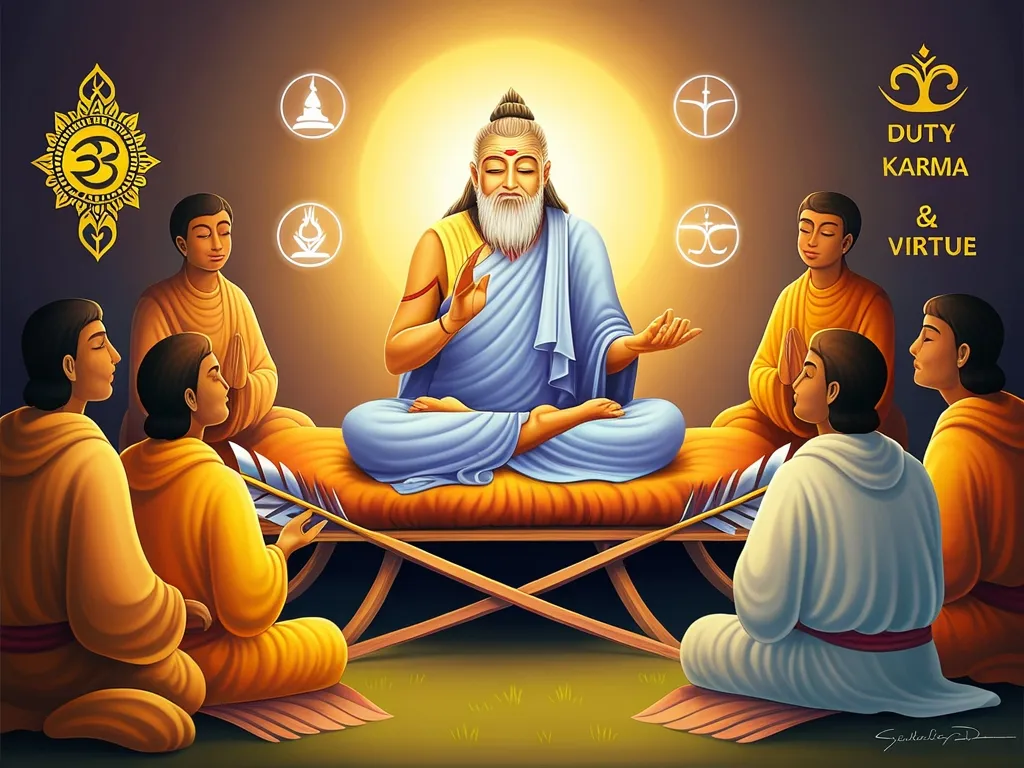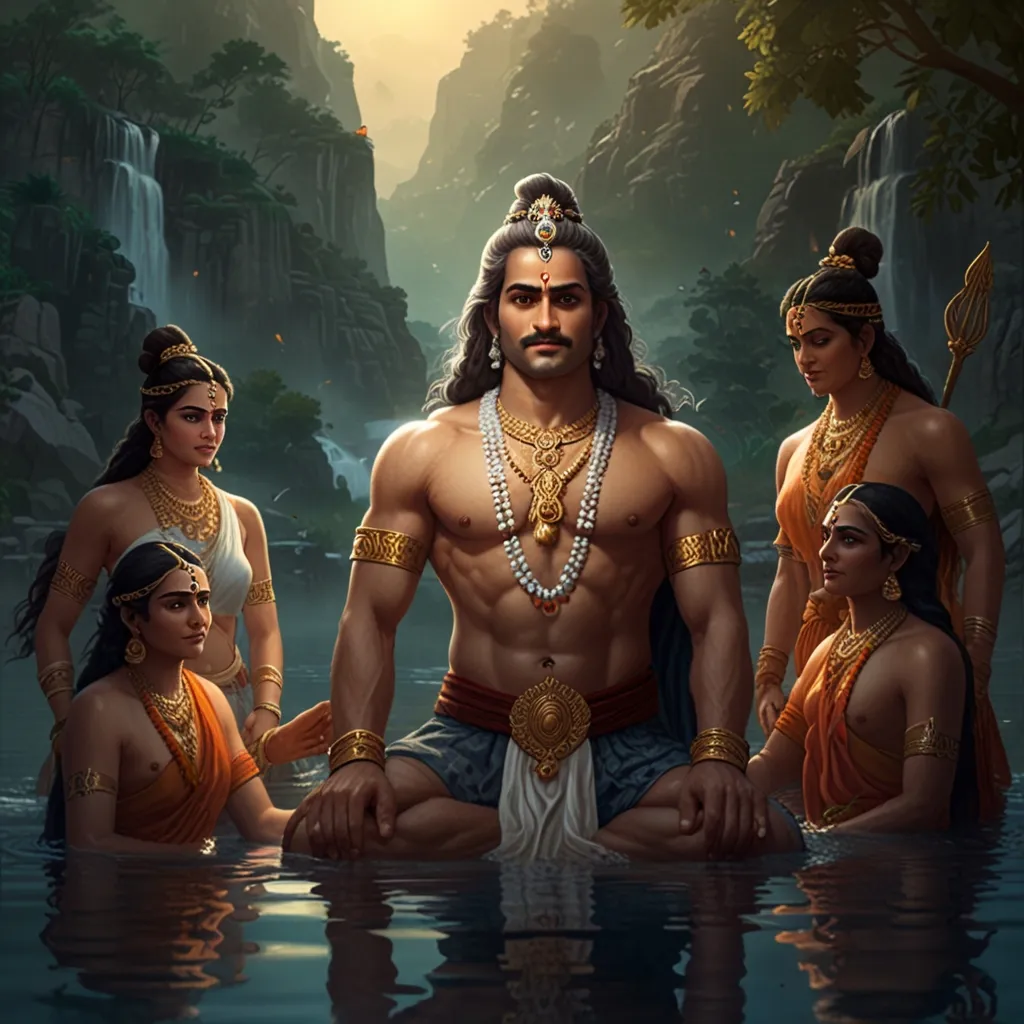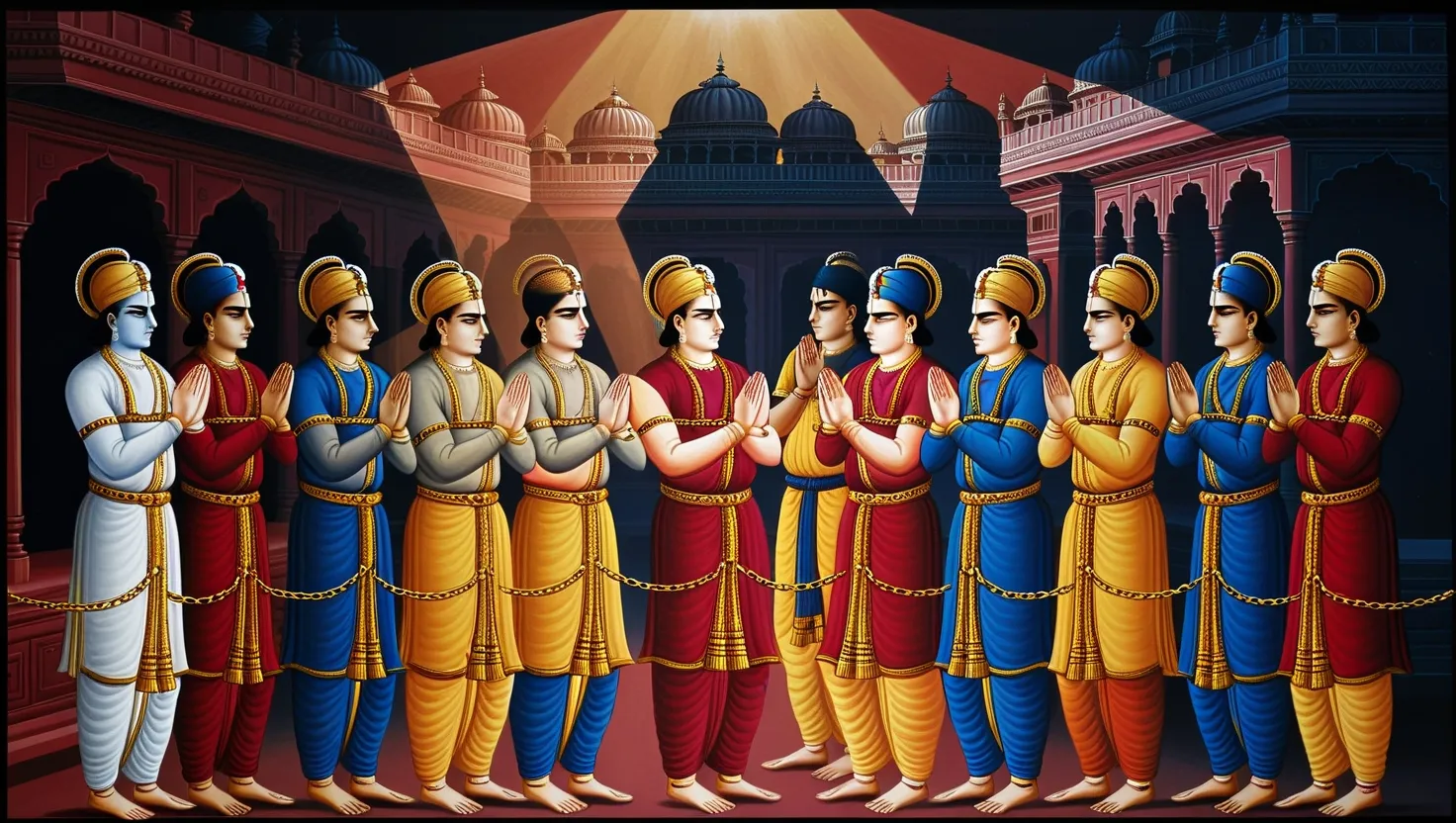In the grand tapestry of Indian mythology, the tale of Savitri stands out as a radiant beacon of love and devotion. This legendary story, embedded in the ancient Mahabharata, showcases a princess whose loyalty and determination transcended the boundaries of life and death itself. The timeless tale casts its spell on the Pandavas, who draw inspiration from Savitri’s relentless dedication to her beloved husband, Satyavan.
Savitri was no ordinary princess. Her beauty was unparalleled, and her intelligence was the stuff of legends. Her charm and wisdom captivated everyone, yet these qualities also intimidated many potential suitors. Dissatisfied with the prospect of an arranged marriage, Savitri took the bold step of choosing her own husband.
While on her quest, she came across Satyavan, a handsome prince living in exile. His father, King Dyumatsena, had lost both his kingdom and sight. Despite knowing that Satyavan was fated to die within a year of their marriage, Savitri’s love was unwavering. She chose to marry Satyavan and left her royal comforts to live with him and his parents in a humble hermitage on the fringe of a forest.
Life in the forest wasn’t easy, but Savitri’s relentless devotion and care for her new family won everyone’s hearts. Her dedication to her family was evident in her actions—whether it was attending to her mother-in-law with thoughtful gifts and service or respecting her blind father-in-law through her humble speech. Satyavan, too, was deeply touched by her unparalleled sweetness and the serene atmosphere she created at home.
As the ominous day of Satyavan’s predicted demise neared, Savitri’s anxiety mounted. Driven by a fierce resolve to protect her husband, she began a rigorous vow, standing without rest or food for three days and nights. Though her father-in-law was troubled by her severe penance, he blessed her, supporting her in this intense endeavor.
When the destined day arrived, Savitri stayed close to Satyavan as he went into the forest to chop wood. Fatigue soon overcame him, and he rested his head on her lap, drifting into a deep sleep. This was the moment of fate. Yama, the god of death, appeared to seize Satyavan’s soul. Savitri, undeterred, followed Yama, determined to reclaim her husband’s life.
Impressed by Savitri’s loyalty and intellectual prowess, Yama initially urged her to return home. But Savitri persistently argued, emphasizing the significance of righteousness and the companionship of virtuous people. She praised Yama’s own just and fair nature. Each time Savitri outmatched Yama in their exchanges, he conceded by offering her a boon—anything but the return of Satyavan’s life.
Savitri cleverly used these boons. First, she asked for her father-in-law’s sight to be restored. Yama granted it. Next, she wished for his kingdom to be returned. Granted again. Finally, she requested to be the mother of a hundred sons. In a moment of realization, Yama understood that this last wish was impossible unless Satyavan was restored to life. Recognizing her ingenuity and unwavering spirit, Yama agreed to revive Satyavan.
Satyavan woke as if from a deep slumber, and the couple reunited, symbolizing the ultimate victory of love and devotion over death. Savitri’s steadfast determination, intelligence, and selfless love had triumphed, earning the respect and admiration even of the god of death.
The story of Savitri and Satyavan is a celebration of love’s power to overcome even the direst of circumstances. It highlights the virtues of righteousness, devotion, and perseverance. Savitri’s determination and quick thinking not only saved her husband but also honored her family, earning her a legendary status that inspired countless adaptations across various art forms.
From poetry to children’s books and even grand operas, Savitri’s tale resonates across ages and cultures. A notable celebration inspired by her story is the Vat Savitri festival, observed by Hindu women who fast and pray for the longevity and well-being of their husbands. This festival is a living testament to Savitri’s steadfast devotion and her remarkable victory over death.
The narrative of Savitri and Satyavan serves as a timeless reminder of the essence of true love, camaraderie, and the indomitable spirit of a devoted woman. It’s an inspiring lesson that, with commitment and resolve, one can overcome even the most formidable challenges. The legend continues to touch hearts, guiding us in recognizing the strength of unwavering faith and love in our own lives.

